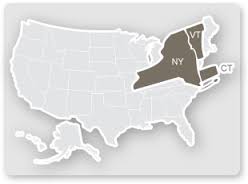By Michael Fuller, Portland Trial Attorney
A new legal opinion subjects mortgage companies to FDCPA liability for falsely implying that a law firm has been retained to collect on past-due accounts.
Creditors Not Regulated by the FDCPA
The Fair Debt Collection Practices Act (FDCPA) (15 USC § 1592a(6)) doesn’t generally regulate creditors collecting their own accounts. For example, the FDCPA doesn’t prohibit Verizon Wireless from directly harassing a consumer.
However, if Verizon Wireless turns a past-due account over to a third party for collections, the third party debt collector is subject to liability for harassment under the FDCPA.
Exception for Creditors Using “False Names”
Last week, the Second Circuit Court of Appeals held that the FDCPA applies to original creditors who give the false impression they have hired a third party law firm to collect debts.
How the “False Names” Exception Works
Under the case of Maguire v. Citicorp (2nd Cir. 1998), a creditor can be liable under the FDCPA if it:
- uses a name that falsely implies a third party is involved in collecting its debts,
- pretends to be someone else, or
- uses a pseudonym or alias.
The Money Store’s Law Firm Constituted a “False Name”
The case, Vincent v. The Money Store (2nd Cir. 2013), highlights a loophole used by many mortgage companies to escape liability under the FDCPA.
How the Loophole is Supposed to Work
‘The Money Store’ services Ms. Vincent’s mortgage.
 The Money Store, in a letter sent by its law firm, allegedly charges Ms. Vincent improper mortgage fees.
The Money Store, in a letter sent by its law firm, allegedly charges Ms. Vincent improper mortgage fees.
If The Money Store is sued under the FDCPA, it argues the FDCPA doesn’t apply to it because the alleged misrepresentations were made by an independent third party law firm.
If a law firm is sued under the FDCPA, it argues that the FDCPA doesn’t apply to it because it was not “collecting debt” but merely sending a mortgage statement.
Why ‘The Money Store’ Fell Under the ‘False Name’ Exception
The Money Store’s letters told homeowners that a law firm had been retained to collect a debt for its client.
 However, evidence showed that the threat was hollow; the law firm was simply a mass processor of letters. The Money Store actually maintained possession over its files. The law firm later shut its doors.
However, evidence showed that the threat was hollow; the law firm was simply a mass processor of letters. The Money Store actually maintained possession over its files. The law firm later shut its doors.
The Court reasoned that because the law firm did not engage in actual bona fide debt collection, a jury could find that The Money Store made false implications as to the name of the entity collecting its debts.
What This Means For Homeowners and Mortgage Companies
The opinion should have a positive impact on consumers seeking to hold mortgage companies and law firms accountable for alleged abuses in the foreclosure process, says consumer protection attorney Kelly Jones.
“The Vincent decision is a logical and necessary application of the ‘false name exception.’ A creditor shouldn’t be able to retain its exempt status under the FDCPA when it rents the name or letterhead of a law firm or other debt collector in order to further intimidate consumers and increase its collections rates,” says Jones.
The opinion is binding and must be followed by judges in the Second Circuit (Connecticut, New York, and Vermont). In all other states, the opinion serves as non-binding persuasive authority.
The Fifth and Seventh Circuits have reached the same conclusion under different circumstances. For more information, read Taylor v. Perrin (5th Cir. 1997) and Boyd v. Wexler (7th Cir. 2001).
 About the Author: Michael Fuller is a Portland trial attorney and chair of the Olsen Daines law firm’s Consumer Protection Group. You can follow him on Google+, Twitter, and visit his blog at www.UnderdogLawBlog.com.
About the Author: Michael Fuller is a Portland trial attorney and chair of the Olsen Daines law firm’s Consumer Protection Group. You can follow him on Google+, Twitter, and visit his blog at www.UnderdogLawBlog.com.
Click here to read more from this author about a Ninth Circuit case dealing with FDCPA liability in the mortgage fraud context called Corvello v. Wells Fargo Bank (9th Cir. 2013).

